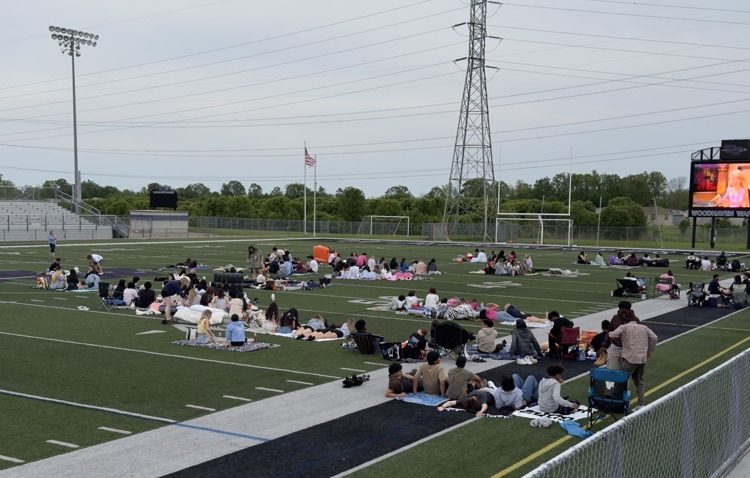Choosing the right college is one of the most critical decisions that a person can make. Has this ever been you? There are many types of private and public colleges and universities in the U.S.-from world-famous institutions to your local community college. The place a person chooses to pursue their higher education can set the course of their future.
Location:
The most crucial part about choosing a college is location. There are colleges and universities all over the world. It all depends on where you want to go. A person can pursue higher education in the tundra or on a white sandy beach. A lot of schools offer study abroad programs that provide students the opportunity to study in a foreign country to earn credit while pursuing their degree. Being able to see different cultures and lifestyles is a great opportunity for some people.
Size:
All sorts of colleges come in many different sizes and shapes and are located in all corners of the world. Some people may prefer a smaller college, to have a strong and connected community. Others would want that large school experience and possible broader opportunities. Also, the size of a school could have a wide range of activities and curriculums outside of class. The size depends on where you are going. The average student-to-teacher ratio in Michigan is 18:1.
Education:
The biggest decision when choosing a college is just the obvious: education. All types of colleges offer many different degrees and certifications. Generally, community colleges offer certifications and associate degrees. Traditional universities offer certifications, associate degrees, bachelor’s degrees, and master’s degrees, and some offer doctorate degrees. Not every college will offer every single major. It may take some research to see what schools offer and what type of programs they have available. Just know, don’t go to a school that doesn’t have your major. What you want to major in should be the first thing to look for when college hunting.
Cost:
The cost is another thing to look out for when choosing a school. Public schools generally offer a lower price for pursuing your education, while private schools can cost more than $100k for a four-year degree. Either way, college is very expensive, but it is worth the money. The assistance of financial aid helps make college affordable. Scholarships, grants, work-study, and student loans all help lower the overall cost. Scholarships and grants are a great way to cut expenses for schooling, especially when they are considered free money because they don’t need to be repaid. Work-study is another alternative way to pay for college. Working part-time jobs as a student, not only will help pay for school, but it also allow you to pick up new life skills while working. Student loans are another possible choice, but even if you get a loan, you have to pay it back in interest, and student loans can get heavy to pay back.
Religious affiliation:
Religion plays a big factor when deciding on a school. Your faith will follow you throughout your life and finding a school that aligns with your beliefs and values is truly important. A wide variety of colleges offer programs that allow you to learn and study different religions and indulge in different opportunities. All colleges have religious organizations and communities that can unite everyone as a family. When you feel stressed, anxious, or even worried, you will have people there to support you. Even if you’re not religious, some people can help. Spiritual practices like praying, meditating, or attending spiritual services can be available depending on where you are going. For some students, religion is the very first thing to consider when searching for the perfect school.
Housing:
Where you will live is another important thing to consider when college hunting. Housing options can vary depending on where you want to go. College dorms are typically smaller and are limited to a closet, loft, dresser, and desk. Depending on the dorm, you may have to share a bathroom or use a communal bathroom. Just know, you will likely have a roommate most of the time. You may get a good roommate who is super chill or a roommate you don’t get along with. Some dorms can house 2 people and then other dorms can house up to 10 people–although dorms that house 2-4 people are usually more desirable. You may not always get a kitchen in your dorm. A kitchen in a dorm is very rare, and uncommon; you can bring a mini refrigerator and air fryer but those have to be a certain size to fit in your dorm. What you can bring to your dorm is limited besides the necessities.
Private vs Public:
The last thing you need to know when searching for a college is public or private. This is important because not every college is made the same, or offers the same programs. State and federal governments fund public colleges and can lower tuition rates for students in-state. Meanwhile, private colleges rely on student tuition fees and alumni donations to fund their programs. Private colleges tend to have fewer programs, but students who know where they wanna study can gain more from a private school. Public schools offer a wide range of programs, so if you don’t know what you want to do, public colleges can give you so many options. Both public and private colleges give financial aid to the students. Private colleges are often more expensive than public colleges, but more money can be given out from scholarships with private colleges making them more affordable than public colleges.
Conclusion:
These were just some things to keep in mind when choosing a college. Remember, college isn’t for everyone, and what you want to do after high school is up to you. You can pick up an internship, learn overseas, or maybe even take a trade. There are so many possibilities for a higher education that’s not just college. It’s up to you where you wanna go and what you want to do.







